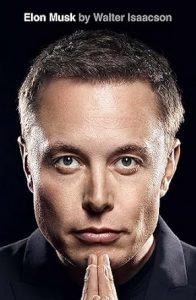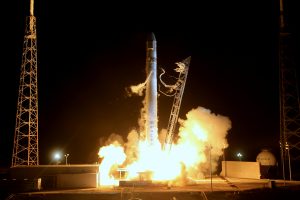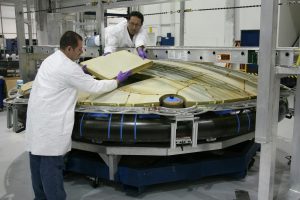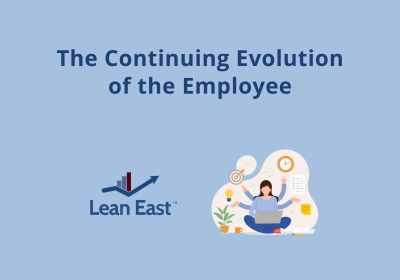
Elon Musk is a fascinating person. I just finished reading Elon Musk by Walter Isaacson and was amazed at what Elon has accomplished in his life. Isaacson shadowed Musk for two years, attended his meetings, walked his factories with him, and spent hours interviewing Musk, his friends and family, coworkers, and adversaries. The 600+ page book was released in 2023 and became a best-seller. I am sharing the wisdom I gleaned from the book, condensed to my 10 great leadership lessons from Elon Musk.
Elon Musk’s Background
Elon Musk is a visionary entrepreneur who wants to change the world and is currently my favorite example of a true engineer. If you don’t already know what he is involved with then here is an overview:

- Founder and CEO of Tesla, the world’s leading electric car company operating out of the gigafactory in Texas, focused on self-driving technology, Artificial Intelligence, solar cells, Powerwall batteries, and the Optimus robot,
- Founder and CEO of SpaceX, the leading space exploration company developing reusable rockets to transport cargo, humans, and Starlink satellites,
- Co-founder of Neuralink, developing brain-computer interfaces,
- Co-founder of OpenAI (developer of ChatGPT),
- Founder of The Boring Company, developing tunneling technologies to reduce traffic congestion,
- Owner of X (formerly Twitter) one of the largest social media platforms in the world,
- President of the Musk Foundation (as one of the world’s wealthiest people).
Musk grew up in South Africa as a “free-range kid” and had a challenging childhood. He moved to Canada and eventually studied at the University of Pennsylvania. In 1995, he started an internet company that made him enough money to fund his other companies. He has had multiple wives and many children.
Musk has an incredible work ethic and tends to hyperfocus on issues. He also stays very involved with his companies. Friends and family in the book note that he is on the autism spectrum. In the past several years, and especially since purchasing Twitter (now X), Elon has become more outspoken and has mostly either fans or haters. This post will ignore the negatives and look only at the positive lessons I gleaned from his career.
Put Passion Before Profit

The first leadership lesson from Elon Musk is the passion he has for his work. He is clearly not working for the money but ensures his companies make money so that they will survive and also thrive for his passions. Musk would likely tell you that he works harder for humankind than anyone else and I would have to agree.
Musk founded SpaceX with the end goal of human expansion to Mars. He continues to develop rockets that will eventually be capable of human travel to the red planet.
Musk founded Tesla to reduce fossil fuel emissions so hopefully, we don’t need to leave to colonize Mars quite as soon.
Musk is currently developing AI and neuralink technologies to benefit humans. He is very worried about AI, and wants to develop safeguards that protect humans.
There is no doubt that Musk works incredibly hard, and he isn’t doing it for the money. I am most impressed that Musk has found areas that interest him and that he is certainly maximizing his natural strengths.
Be Riskier

Elon Musk has always done risky things. There are many times when his companies have nearly failed. He has certainly experienced multiple disasters (rocket explosions, car issues, etc.), but I think his success points to the benefits of pushing a bit harder and taking a few more chances.
I will never do the risky things Elon does and I also don’t recommend it. Elon’s success does, however, encourage me to open up, take more chances, and take more calculated risks.
Question Every Requirement And Cost
There are many times in Musk’s companies where he has rejected product designs or processes because they are too complex or costly. One of Musk’s rules is to “question every requirement,” and requirements from smart people are the most dangerous because people are less likely to question them.
“The only rules are the ones dictated by the laws of physics. Everything else is a recommendation.”
– Elon Musk
Musk shares an “idiot index” he developed. This is the ratio of the total cost of a component to the cost of its raw materials. If a machine part costs $100 but the raw aluminum it is made of costs only $5 the index is high. As Musk put it, “If the ratio is high, you’re an idiot.”
Simplify By Deleting Parts/Steps

Musk has an incredible grasp of fundamentals and will challenge engineers to always reduce parts or steps. If a part is held in place by four screws, Musk will ask to try it with just one screw instead. Often he goes too far, and the final design has two. This is still a 50% reduction in both parts and installation time! Musk notes, “If you do not end up adding back at least 10% of them, then you didn’t delete enough.”
Here is a post we wrote that includes a video of Elon Musk’s Five Step Improvement Process and includes these last two leadership lessons.
Control More Of The Value Chain
The value chain represents all aspects of delivering a product, from raw material to the sale and delivery. I typically recommend companies focus on their strength areas (their core competencies) and use suppliers for other components and processes.
Musk often wants to own the design and control more aspects of his value chain. I suspect much of this is due to controlling costs and making it easier for him to meet his aggressive timelines. It also removes some of the intermediate “profit takers” in his process and makes his companies less susceptible to supply chain issues and supplier cost increases. SpaceX and Tesla have grown even during market downturns due to this control.
To Be Continued…
We hope you have some good takeaways from the first half of our 10 great leadership lessons from Elon Musk. Let us know if you disagree with some of the lessons I took from the book, or if you have different leadership lessons from studying Elon Musk. Our next post will wrap up the lessons.
Please leave your comments and questions below.





[…] views failure as a learning tool and part of the path to success. Example: SpaceX experienced numerous rocket […]